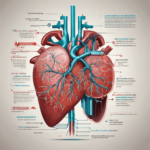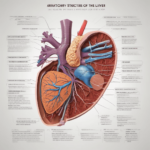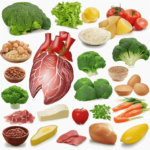Introduction:
A low-carb, high-protein diet has gained considerable attention for its numerous health benefits and impact on overall well-being. By limiting carbohydrate intake, this dietary approach helps regulate blood sugar levels, making it particularly beneficial for individuals with diabetes or those seeking to manage their weight. Furthermore, a high-protein intake plays a crucial role in muscle repair and growth, making it an ideal choice for athletes and fitness enthusiasts. This type of diet also promotes satiety, helping individuals feel full for longer periods and reducing overall caloric intake. Moreover, it can contribute to improved heart health by positively influencing cholesterol levels and triglycerides. Additionally, a low-carb, high-protein diet may enhance cognitive function and support mental clarity. As a holistic approach to nutrition, this dietary strategy is not only effective for weight management but also offers a range of health advantages, making it a valuable choice for those looking to optimize their nutritional habits.
Benefits of Low Carb High Protein Foods:
1. Weight Management:
a. Increased Satiety:
Protein’s Filling Effect: High-protein foods are known for their ability to induce a feeling of fullness and satisfaction, reducing overall calorie consumption. This can be particularly beneficial for individuals aiming to control their weight.
b. Calorie Burning:
Thermic Effect of Protein: The body expends more energy digesting and processing protein compared to carbohydrates and fats. This higher thermic effect contributes to increased calorie burning, supporting weight loss efforts.
c. Reduced Fat Storage:
Lower Insulin Levels: Low-carb diets, coupled with high protein intake, may lead to lower insulin levels. This hormonal environment is conducive to reduced fat storage, especially in adipose tissues.
2. Improved Muscle Health:
a. Protein Synthesis:
Muscle Repair and Growth: Protein is essential for muscle repair and the synthesis of new muscle tissue. Adequate protein intake, especially in a low-carb context, supports individuals engaged in physical activities, promoting muscle development.
b. Prevention of Muscle Loss:
Preserving Lean Mass: When carbohydrate intake is restricted, the body may turn to muscle tissue for energy. High protein intake helps prevent the breakdown of muscle proteins, preserving lean muscle mass.
3. Sustained Energy Levels:
a. Stable Blood Sugar:
Reduced Carbohydrate Dependency: Low-carb diets promote a lower reliance on carbohydrates for energy. This can result in more stable blood sugar levels, preventing energy spikes and crashes, leading to sustained energy throughout the day.
b. Enhanced Fat Utilization:
Increased Fat Oxidation: With reduced carbohydrates, the body is prompted to use fat as a primary energy source. This can contribute to more sustained and long-lasting energy levels.
c. Mitigated Energy Slumps:
High-protein foods, by virtue of their satiating effect and role in stabilizing blood sugar, help prevent the energy slumps commonly associated with high-carb meals.
Incorporating a diet rich in low-carb, high-protein foods offers a multifaceted approach to health and wellness. The combination of increased satiety, support for muscle health, and sustained energy levels makes it an attractive option for those looking to manage their weight, enhance physical performance, and maintain overall well-being.
It’s crucial to personalize dietary choices based on individual needs, considering factors such as activity level, health status, and personal preferences. As always, consulting with a healthcare professional or a registered dietitian can provide personalized guidance tailored to specific health goals and requirements.

Top Low Carb High Protein Foods:
Chicken Breast:
Description: Chicken breast is a lean meat option with a high protein content and minimal fat. It is versatile, easy to cook, and can be seasoned in various ways to suit different tastes.
Nutritional Profile: Per 3.5 ounces (100 grams), it provides around 31 grams of protein and minimal carbohydrates.

Salmon:
Description: Salmon is a fatty fish rich in omega-3 fatty acids, which are beneficial for heart health. It has a delicious flavor and can be grilled, baked, or pan-seared.
Nutritional Profile: Per 3.5 ounces (100 grams), it offers approximately 25 grams of protein and negligible carbs.

Eggs:
Description: Eggs are a complete protein source, containing all essential amino acids. They are versatile and can be prepared in various ways, such as boiled, scrambled, or poached.
Nutritional Profile: One large egg provides about 6 grams of protein with less than 1 gram of carbohydrates.
Greek Yogurt:
Description: Greek yogurt is a strained yogurt with a thicker consistency and higher protein content than regular yogurt. It can be enjoyed on its own or used as a base for smoothies and sauces.
Nutritional Profile: Per 6 ounces (170 grams), it offers around 15 grams of protein and a moderate amount of carbs.
Almonds:
Description: Almonds are a nutrient-dense nut that provides protein, healthy fats, and fiber. They make for a convenient and satisfying snack.
Nutritional Profile: Per ounce (28 grams), almonds supply about 6 grams of protein and 6 grams of carbohydrates.
Tofu:
Description: Tofu, made from soybeans, is a popular plant-based protein. It has a neutral taste, making it versatile for both sweet and savory dishes.
Nutritional Profile: Per 3.5 ounces (100 grams), tofu contains around 8 grams of protein and 2 grams of carbs.
Broccoli:
Description: Broccoli is a cruciferous vegetable that is low in carbs and high in fiber. It adds crunch and nutritional value to salads, stir-fries, and side dishes.
Nutritional Profile: Per 1 cup (91 grams) of chopped broccoli, it provides about 3 grams of protein and 6 grams of carbohydrates.
Chia Seeds:
Description: Chia seeds are tiny powerhouses packed with protein, fiber, and healthy fats. They can be added to smoothies, yogurt, or used to make chia pudding.
Nutritional Profile: Per ounce (28 grams), chia seeds offer around 5 grams of protein and 12 grams of carbohydrates.
Lean Beef (Sirloin):
Description: Lean beef, such as sirloin, is a great source of high-quality protein. It can be grilled, roasted, or stir-fried for a satisfying and protein-packed meal.
Nutritional Profile: Per 3.5 ounces (100 grams), lean beef provides about 25 grams of protein and minimal carbs.
Spinach:
Description: Spinach is a leafy green vegetable that is low in carbs and rich in vitamins and minerals. It can be used in salads, omelets, or sautéed as a side dish.
Nutritional Profile: Per 1 cup (30 grams) of raw spinach, it contains approximately 1 gram of protein and 1 gram of carbohydrates.
These foods can be combined to create well-balanced and delicious meals that support a low-carb, high-protein diet. Remember to consider your individual nutritional needs and consult with a healthcare professional or a registered dietitian for personalized advice.
Expert Insights and Research:
The benefits of low-carb, high-protein diets have been the subject of numerous studies, and experts in the fields of nutrition and health have provided insights into their positive effects. Here are summaries of some key studies and expert opinions:
Studies Supporting Benefits:
-
-
The New England Journal of Medicine (NEJM) Study:
-
In a study published in NEJM, researchers found that individuals following a low-carbohydrate diet experienced significant weight loss compared to those on a low-fat diet. The low-carb group showed improved lipid profiles, including higher levels of HDL (good) cholesterol.
-
-
American Journal of Clinical Nutrition Meta-analysis:
-
A meta-analysis published in the American Journal of Clinical Nutrition reviewed multiple studies and concluded that low-carbohydrate diets are effective for weight loss and improving cardiovascular risk factors, including reducing triglycerides and increasing HDL cholesterol.
-
-
British Journal of Nutrition Research:
-
Research published in the British Journal of Nutrition suggested that low-carbohydrate diets may be beneficial for individuals with type 2 diabetes. The study found improvements in glycemic control and a reduction in medication requirements in participants following a low-carb diet.
-
-
Annals of Internal Medicine Study on Satiety:
-
A study in the Annals of Internal Medicine indicated that a low-carbohydrate diet may lead to increased feelings of fullness and satisfaction, potentially aiding in weight management by reducing overall calorie intake.
Expert Quotes and Opinions:
-
- Dr. Eric Westman, MD, MHS (Duke University):
Quote: “Low-carbohydrate diets have been shown to be effective for weight loss and improving metabolic health. They can be especially beneficial for individuals with insulin resistance or type 2 diabetes.”
-
- Dr. Jeff Volek, PhD, RD (The Ohio State University):
Quote: “High-protein, low-carbohydrate diets can help preserve lean body mass during weight loss, and they have metabolic advantages, including improved insulin sensitivity and lipid profiles.”
-
- Dr. Sarah Hallberg, MD, MS, (Medical Director, Virta Health):
Quote: “There’s growing evidence that low-carbohydrate diets can be an effective intervention for reversing type 2 diabetes and managing other metabolic conditions.”
-
- Dr. David Ludwig, MD, PhD (Harvard T.H. Chan School of Public Health):
Quote: “Low-carbohydrate diets, when done in a healthful way with an emphasis on whole foods, can be an effective approach for weight loss and improving metabolic health.”
-
- Prof. Tim Noakes, MD (University of Cape Town):
Quote: “There is robust evidence supporting the benefits of low-carbohydrate, high-protein diets for weight loss and metabolic health. Such diets can be particularly effective for those with insulin resistance.”
While these studies and expert opinions highlight the potential benefits of low-carb, high-protein diets, it’s essential to note that individual responses to diets may vary. Consulting with healthcare professionals or registered dietitians is advisable before making significant changes to one’s dietary habits, especially for those with pre-existing health conditions.
conclusion:
In conclusion, the adoption of low-carb, high-protein foods presents a promising avenue for individuals pursuing diverse health goals. Supported by scientific studies demonstrating benefits in weight management and metabolic health, and echoed in the success stories of those who have thrived on such diets, the approach offers a range of advantages. Expert opinions further underscore the efficacy of well-designed low-carb, high-protein dietary plans, emphasizing the importance of whole, nutrient-dense foods tailored to individual needs. Nevertheless, it is crucial to approach dietary changes judiciously, seeking guidance from healthcare professionals, particularly for those with pre-existing health conditions. Recognizing the synergy of balanced nutrition, regular physical activity, and personalized lifestyle choices contributes to a comprehensive approach for optimizing overall well-being.
FAQs about Low Carb High Protein Foods:
Can I follow a low carb high protein diet if I have dietary restrictions?
Tailoring the diet to accommodate restrictions is possible, but it’s advisable to consult with a nutritionist for personalized guidance.
Are there vegetarian options for a low carb high protein diet?
Absolutely! Plant-based proteins like tofu, tempeh, and legumes are excellent choices for vegetarians.
How does a low carb high protein diet impact energy levels during workouts?
Many individuals experience sustained energy levels, enhancing workout performance.
Is it necessary to count macros on a low carb high protein diet?
While not mandatory, tracking macronutrients can provide valuable insights into your dietary habits.
Can children follow a low carb high protein diet?
It’s crucial to consult with a pediatrician or nutritionist before implementing any restrictive diet for children.
What are the benefits of eating low-carb, high-protein foods?
A low-carb, high-protein diet can offer several potential benefits, including:
-
- Weight loss: Eating fewer carbohydrates and more protein can help you feel fuller for longer, potentially reducing overall calorie intake and promoting weight loss.
- Improved blood sugar control: Protein can help stabilize blood sugar levels, which can be beneficial for people with diabetes or prediabetes.
- Increased muscle mass: Consuming adequate protein is essential for maintaining and building muscle mass, which can boost metabolism and improve overall fitness.
- Enhanced bone health: Protein plays a role in bone formation and metabolism, contributing to stronger and healthier bones.
- Reduced risk of heart disease: Low-carb, high-protein diets may help lower blood pressure, cholesterol levels, and inflammation, potentially reducing the risk of heart disease.
What foods are considered low-carb and high-protein?
A wide range of foods fall into the category of low-carb and high-protein, including:
-
- Meat: Chicken, beef, pork, lamb, and fish are excellent sources of protein with minimal carbohydrates.
- Eggs: Eggs are a versatile and nutrient-rich source of protein, containing very few carbohydrates.
- Dairy products: Low-fat cheese, Greek yogurt, and cottage cheese are good sources of protein with moderate amounts of carbohydrates.
- Nuts and seeds: Almonds, peanuts, walnuts, sunflower seeds, and chia seeds are high in protein and fiber, making them suitable low-carb options.
- Non-starchy vegetables: Green leafy vegetables, broccoli, asparagus, cauliflower, and zucchini are low in carbohydrates and good sources of fiber.
How many carbs should I consume on a low-carb, high-protein diet?
The specific amount of carbohydrates recommended for a low-carb diet varies depending on individual needs and goals. Generally, a low-carb diet typically limits carbohydrates to around 20-50 grams per day.
How much protein should I consume on a low-carb, high-protein diet?
Protein intake recommendations for a low-carb, high-protein diet can vary based on factors like weight, activity level, and health goals. A general guideline suggests consuming around 0.8-1 gram of protein per pound of body weight daily.
What are some healthy and delicious low-carb, high-protein recipes?
Numerous recipes cater to low-carb, high-protein dietary needs. Here are a few examples:
-
- Grilled chicken salad with avocado and mixed greens: This salad combines protein-rich grilled chicken with healthy fats from avocado and fiber-rich mixed greens.
- Baked salmon with roasted vegetables: Baked salmon provides a lean protein source, while roasted vegetables like broccoli, carrots, and zucchini add fiber and nutrients.
- Scrambled eggs with spinach and feta cheese: Scrambled eggs with spinach and feta cheese offer a simple, protein-packed breakfast or meal option.
- Tuna salad stuffed avocado: Tuna salad provides a versatile protein source, while an avocado half creates a low-carb vessel for the filling.
- Turkey burgers with sweet potato fries: Turkey burgers are a healthier alternative to beef burgers, and sweet potato fries offer a lower-carb option compared to traditional fries.
What are some tips for transitioning to a low-carb, high-protein diet?
Gradually incorporating low-carb, high-protein foods into your diet can make the transition smoother. Here are some tips:
-
- Start by making small changes: Replace high-carb items with low-carb alternatives one at a time.
- Plan your meals: Planning meals in advance can help you make healthier choices and avoid impulsive decisions.
- Find low-carb snacks: Keep healthy low-carb snacks on hand to manage hunger and prevent cravings.
- Stay hydrated: Drinking plenty of water can help you feel full and support overall health.
- Seek guidance: Consult a registered dietitian or nutritionist for personalized advice and support.













